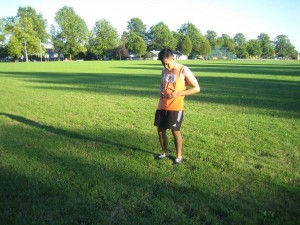Sprained finger is a usual condition described by damage or tearing of the connective tissue of one or more finger joints. Excluding the thumb, each of the four fingers comprises of three small bones called as phalanges. Each joint contains of strong connective tissue wrapping around the bone ends and cartilage that lies between the joint surfaces, cushioning the effect of one bone on another during activities.
Every movement of fingers such as stretching or compression forces placed on the finger joints. If excessive forces due to too much recurrence or high force, injury to the fingers joints may happen. Damaging the cartilage or ripping the connective tissue surrounding the joint. When this condition occurs, sprained finger may occur.
Causes of Sprained Finger
Finger sprains can be commonly caused by ball sports like basketball or netball and may occur because of a specific incident like hyperextension force.
A sprained finger may also happen in contact sports due to a collision with another player or in martial arts. Sometimes, a sprained finger will happen due to repetitive strain related with overuse. This may be the instance in patients who execute repetitive activities including end of area movements of the fingers.
Signs and Symptoms
Persons with a sprained finger generally experience a sudden outbreak of finger pain during the causative movement. An audible or pop sound at the time of injury is experienced. Swelling or bruising will often develop around the affected joint. Symptoms are generally aggravate with actions that involve use of the hand and fingers such as , writing, typing, catching balls, opening jars or doors, general gripping activity, cooking, picking up heavy objects, household activities or placing weight over the affected hand and fingers. All dislocations need to be handled by a medical professional and should be X-rayed before and after being put back into place to establish relocation and to eliminate fracture.

Treatment for Finger Sprain
Most patients with a sprained finger make a good recovery with suitable physiotherapy. One of the key components of treatment is that the patient rests adequately from any activity that surges their pain until they are indication free. Protective taping or a protective brace is frequently necessary for a period of time to alleviate the joint and guard it from further injury.
Physiotherapy for finger sprain can hurry the healing process, ensure an optimal result and lessen the likelihood of recurrence. Treatment may include:
- anti-inflammatory advice
- joint mobilization
- soft tissue massage
- electrotherapy
- exercises to improve flexibility and strength
- education
- activity modification advice
- a gradual return to activity program
- finger taping
- finger bracing
- ice or heat treatment
